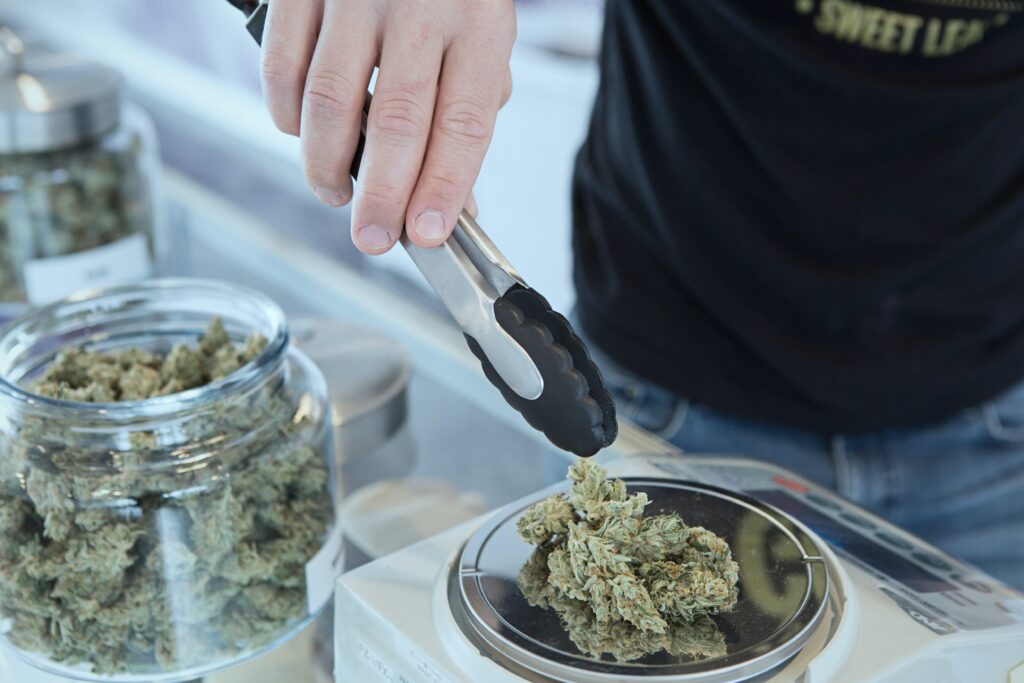
Reduced testing allowance in Colorado will change July 2024 requiring the creation and implementation of a HACCP plan. Some money spent now to get this right with iComply will save thousands of dollars in the long run in testing – let alone any notices of destruction or embargo from NOT following these new regulations regarding reduced testing allowance and HACCP Plan.
Quite a few changes in Reduced Testing Allowance for contamination will impact cultivations.
One, is that you must have SOPs around Microbial Control Steps and identify Critical Control Points (CCP) which is part of what is reviewed during the 12mo RTA period. This includes creating a process map identifying the cannabis cultivation CCPs.
Another is that the $4000 fee for RTA will be used for additional enforcement and oversight of the RTA program by the MED. While this hasn’t changed much for potency RTA, it has changed ALOT for contamination. Paying $4k and signing the attestation means you understand and are ready for the following:
- All regulated marijuana harvested is required to achieve and maintain reduced testing allowance validation.
- No New Material Changes are expected for at least 12 months (without having to repeat the RTA process).
- New Genetics are planned for the following 12mo period and ready for RTA without new procedures, chemicals, equipment, or other material changes.
- The analysis, creation, implementation, and ongoing assessment of a Hazard Analysis and Critical Control Point (HACCP) System containing elements defined in ASTM D8250-19: “Standard Practice for Applying a Hazard Analysis Critical Control Points (HACCP) System for Cannabis Consumable Products” that addresses each product type to receive Reduced Testing Allowance for microbial contaminant testing.
- Adherence to cleaning and equipment maintenance logs in accordance with up to date and accurate Standard Operating Procedures.
All of the above can also apply to additional production processes such as physically separated marijuana concentrate and pre-roll production which must also be ready for RTA. SOPs need to be up to date and accurate to all current equipment, materials, chemicals, tools, and Personal Protective Equipment (PPE) for cannabis cultivation.

This requires an understanding of the components of this standard and how to implement it in the cultivation’s operations. For purposes of this Rule, a Critical Control Point (CCP) means a step in the creation of Regulated Marijuana at which controls can be applied. iComply works with its clients to define a process map which can help identify these CCPs.
CCPs are essential to prevent or eliminate a safety hazard or reduce it to an acceptable level and have the same meaning as defined and used in ASTM Standard D8250-19, which the MED has a copy available to the public for inspection.
Effective July 1, 2024, the HACCP System for RTA will require:
Regulated Marijuana Cultivation Facilities to be able to achieve a Reduced Testing Allowance specifically for microbial contaminant testing if they have a Hazard Analysis and Critical Control Point (HACCP) System in place as defined in ASTM D8250-19. The HACCP System should address each product type for which reduced testing is sought and establish Critical Limits (CL’s) for each process, product, and its Critical Control Point.
The HACCP System must address biological hazards at a minimum, and it should also address chemical and physical hazards at its Critical Control Points (CCP) by establishing Critical Limits (CLs) during production.
Detailed documentation and record-keeping of the HACCP System are essential to prove compliance with the RTA standards and to maintain them. The HACCP System must be documented as per ASTM D8250- 19.6.1.12.
The following records must be kept during the time that a Cultivation Facility qualifies for and maintains RTA for microbials and for one year after the RTA expires for any reason.
A. List of the HACCP team, including relevant experience;
B. Product description and intended use for each product type receiving a Reduced Testing Allowance for microbial contaminants;
C. Verified Process Flow Diagram, including Critical Control Points (CCPs);
D. Hazard Analysis;
E. List of CCPs and reasoning as to how they were identified;
F. List of Critical Limits (CLs) and reasoning as to how they were selected;
G. List of Monitoring Procedures for CCPs;
H. List of pre-planned Corrective Actions in case of deviations;
I. List of verification procedures;
J. HACCP system summary page that includes:
1. CCPs;
2. Critical Limits (CLs);
3. Monitoring Procedures;
4. Corrective Actions related to specific CCPs;
5. Verification procedures; and
6. Record Titles associated with the CCP activities (i.e. The Water Activity Monitoring Logbook, etc.);
K. Support documentation of the CCP validation (i.e. microbial contaminants testing results for Reduced Testing Allowance qualification and maintenance periods); and
L. Documents generated during operational activities related to the HACCP system, including at minimum: Verified Monitoring Logs for CCPs, Corrective and Preventive Actions documentation related to CCPs, and Material Changes related to HACCP system.
Regulated Marijuana Cultivation Facilities must maintain various records related to their HACCP System, including a list of the HACCP team, product descriptions, process flow diagrams, hazard analyses, lists of CCPs and CLs, monitoring procedures, corrective actions, verification procedures, documentation, and more.
iComply helps cultivators with HACCP documentation for Reduced Testing Allowance by identifying the process map, its critical control points for each strain and product, and ensures SOPs are accurate and up to date to achieve RTA. Once these are identified, narrated, documented, and designed, iComply also ensures cultivators have the forms and documentation to maintain RTA specifically around cleaning and maintenance as well as internal auditing of the HACCP system.
Also due July 1, 2024 for microbial RTA, a Cultivation Facility must conduct an internal audit to assess its compliance with specific standards in the HACCP System and the rules 3-10, 3-330, 3-336, 4-110, 4-120, 6-210(D), and 6-120(E).
Internal Audit Scoring Rubric. The internal audit must be scored and pass with at least 80% to avoid material changes and re-resting. Non-conformance affecting the score is as follows:
A. Minor: -1% (A deficiency in the compliance to Rule that reasonably could lead to a risk in product safety.)
B. Major: -5% (A deficiency in compliance to Rule that carries a highly likely-to-definite risk to product safety. )
C. Critical: -100% (A clear deficiency in compliance to Rule that could lead to serious injury or death; or if any falsification of records is found)
On a weekly, monthly, and ongoing basis, these internal audits to ensure compliance with HACCP and RTA documentation are also required. Any failure to maintain HACCP means a re-testing and failure of the RTA. This is in addition to maintaining documentation on each strain and product’s individual and ongoing test results.

Finally, an authorized representative of the facility must also sign an attestation of substantial compliance with the relevant rules (3-330 and 4-120) to achieve the RTA. This means someone in charge of the cultivation is signing off to the MED that they understand these rules and will adhere to them – making training and implementation of the HACCP focused RTA system an important part of the compliance management process. Its one thing to design a compliant system, and another to ensure it stays compliant over the long run.
iComply’s methodology always ensures compliant people manage compliant processes with accountability in measurement and management along the way. If done correctly, the new standards on HACCP and RTA in Colorado’s cultivation environment should lead to greater Return on Investment (ROI) for savvy cultivators in the long run who will save tens of thousands in testing costs alone – while ensuring a higher price for well-cultivated, clean, and scientifically managed cannabis.
